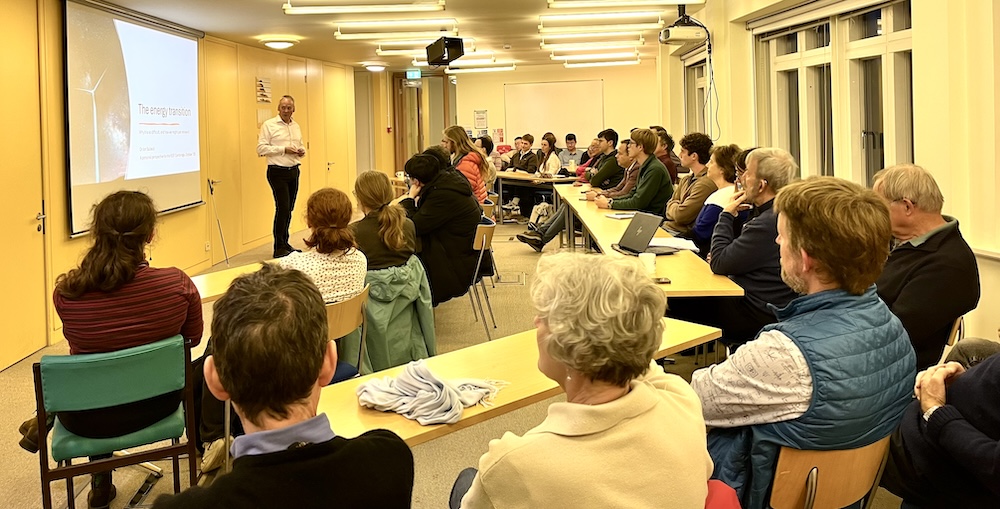Ten years ago, the Paris COP conference heralded an exceptional meeting to tackle climate change, backed by science, and soon embraced by industry. Much has been achieved, particularly in electrification through the explosive growth of renewables and EVs. However, the original optimism now risks stalling in much of the world as the reality of displacing and decarbonising 600 exajoules per annum becomes clear.
Dr Jon Salkeld gave a special seminar at IEEF on the evening of Tuesday 28 October, and discussed some of the key challenges of the energy transition. Jon recently left BP, where for several years he was at the heart of their transition activities, founding their EV charging business, leading their global academic relationships, and running their external advisory committee for technology. During the seminar, he offered a personal perspective based on the highs, lows and learning from a decade at the frontline of the energy transition.
Jon discussed the complex interplay of technology, investment economics, policy, human behaviour and geopolitics which has been shaping the energy sector in recent years. He reflected on how the sector needs to evolve, so that energy becomes low-carbon, while remaining reliable and also affordable. This will require a continued effort to electrify the energy demand and decarbonise supply; find alternative energy vectors for those sectors that cannot easily be electrified; and scale up technologies such as CCS to deal with residual emissions.
Jon’s talk was an opportunity to reflect on how we might recover momentum, and learn from sectors and countries which are currently succeeding in the energy transition.
